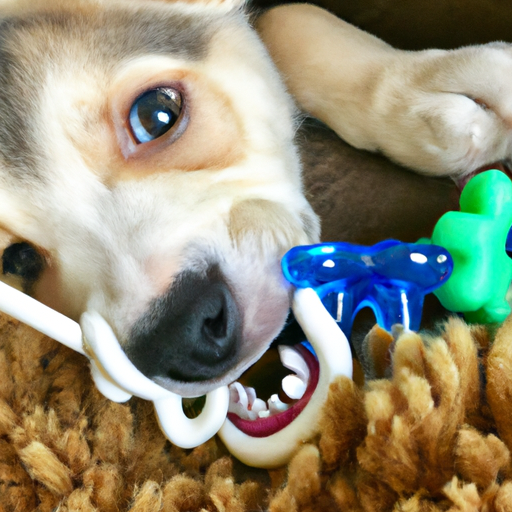Understanding Your Furry Friend’s Development
When you bring home a new puppy, you’re not only welcoming a new member to your family but also accepting the responsibility of caring for them in every step of their growth. One of the major milestones your pup will experience is teething – a phase that can be as challenging for you as it is for your little friend.
The Timeline of Your Pup’s Teething Process
Just like human babies, puppies too have a specific teething timeline. This is when you will find the small, razor-sharp baby teeth being replaced by larger, stronger adult teeth.
- Birth to 2 weeks: Puppies are born without teeth.
- 2 to 4 weeks: The 28 baby teeth start to appear.
- 3 to 6 months: Baby teeth start falling out, and the 42 adult teeth start coming in.
- 6 months and beyond: Most dogs should have a full set of adult teeth.
Recognizing the Signs of Teething
Your puppy won’t be able to tell you when they are starting to teeth, but there are some signs that can give you a clue.
- Chewing and biting: Puppies chew a lot when they’re teething to alleviate the pain and pressure.
- Drooling: More drool than usual can be a sign of teething.
- Missing teeth: If you notice small spaces where teeth used to be, teething is likely underway.
How to Support Your Teething Puppy
As a caregiver, there are several ways you can help your puppy navigate through this uncomfortable period.
- Provide plenty of chew toys: These will give your pup an appropriate outlet for their chewing needs.
- Maintain a consistent feeding schedule: This will help them adjust to their new teeth.
- Keep a close eye on them: This will help you catch any potential issues early on.
| Recommendations | Examples |
|---|---|
| Chew Toys | Nylabones, Kongs |
| Food | Softened puppy kibble, puppy-friendly wet food |
Frequently Asked Questions (FAQs)
Q: Can teething cause my puppy to lose appetite?
A: Yes, teething can sometimes cause puppies to eat less due to the discomfort.
Q: How long does the teething process last?
A: The teething process usually lasts until the puppy is about six months old.
Q: My puppy is biting a lot, is this normal?
A: Yes, puppies often bite more during teething. It’s a way for them to alleviate the discomfort.
In conclusion, teething is a normal part of your puppy’s development. As their caregiver, understanding this process and providing the right support can make this phase easier for both of you.



